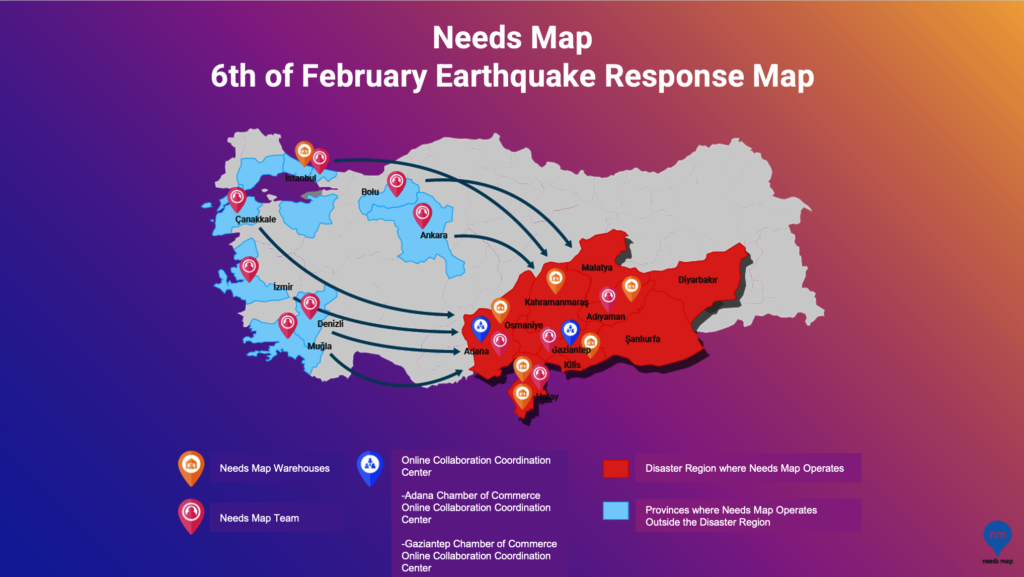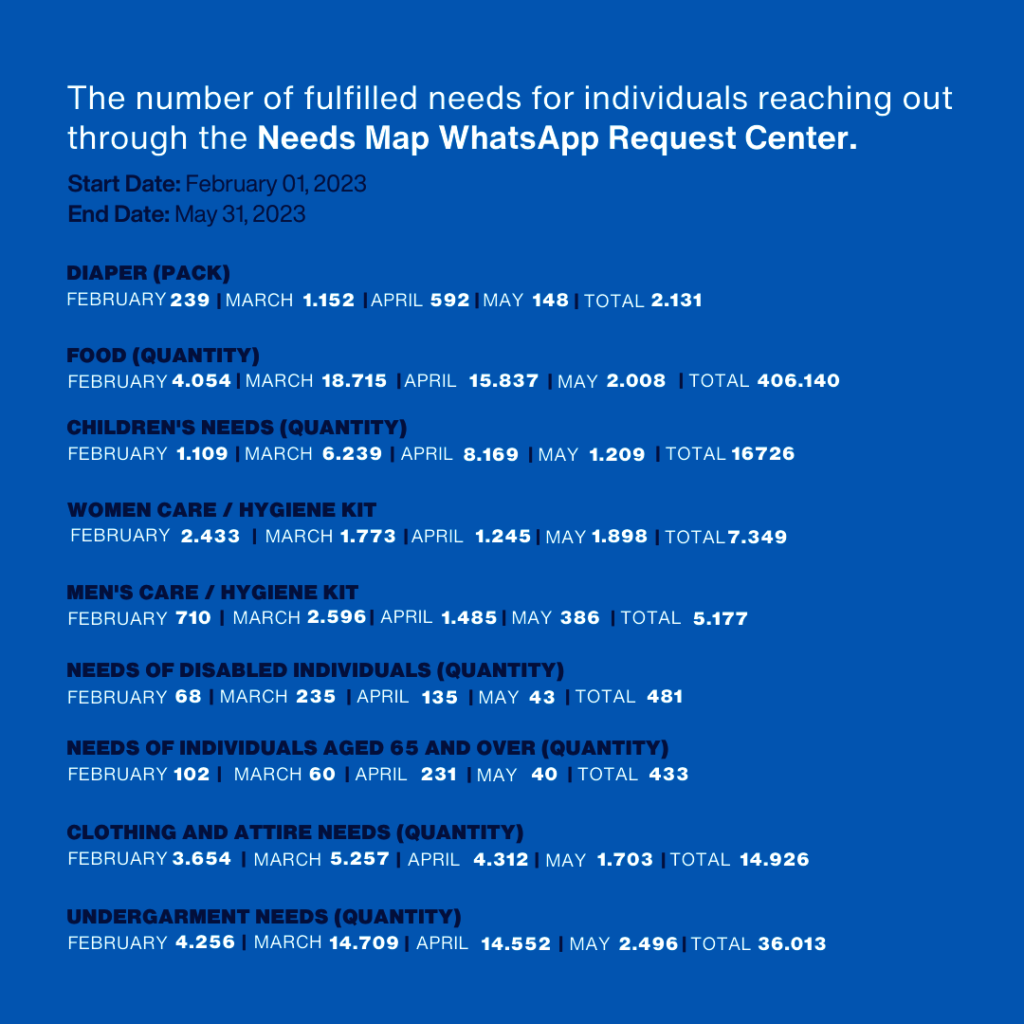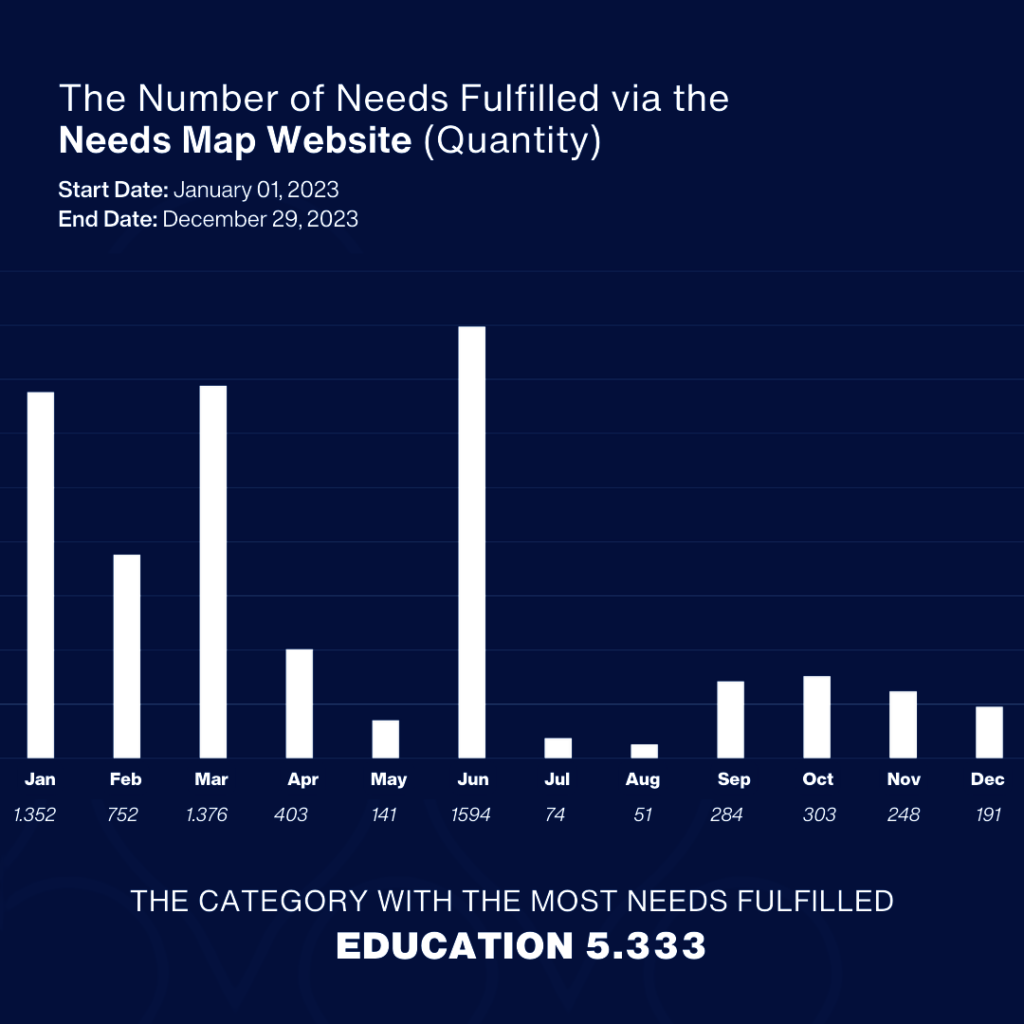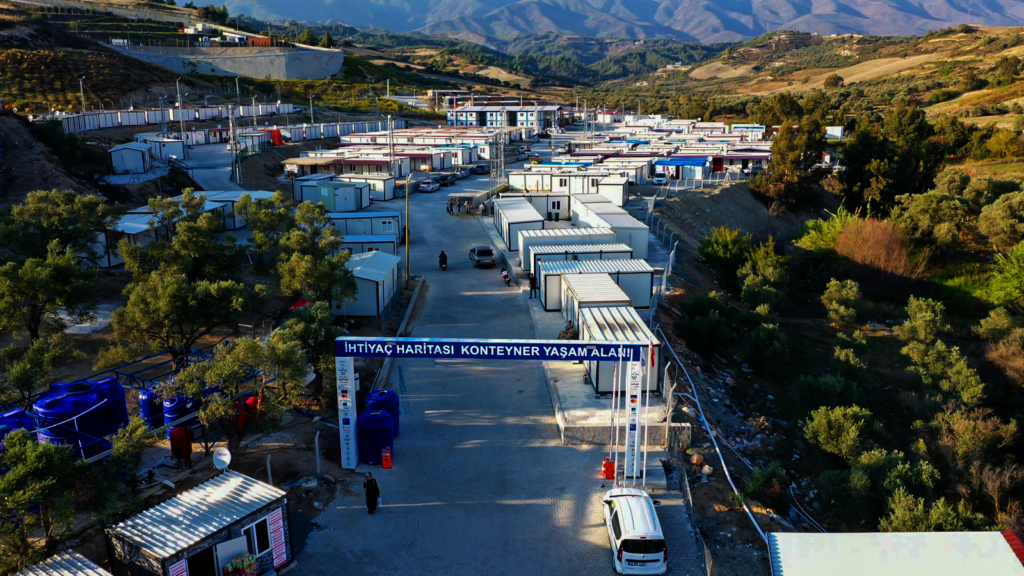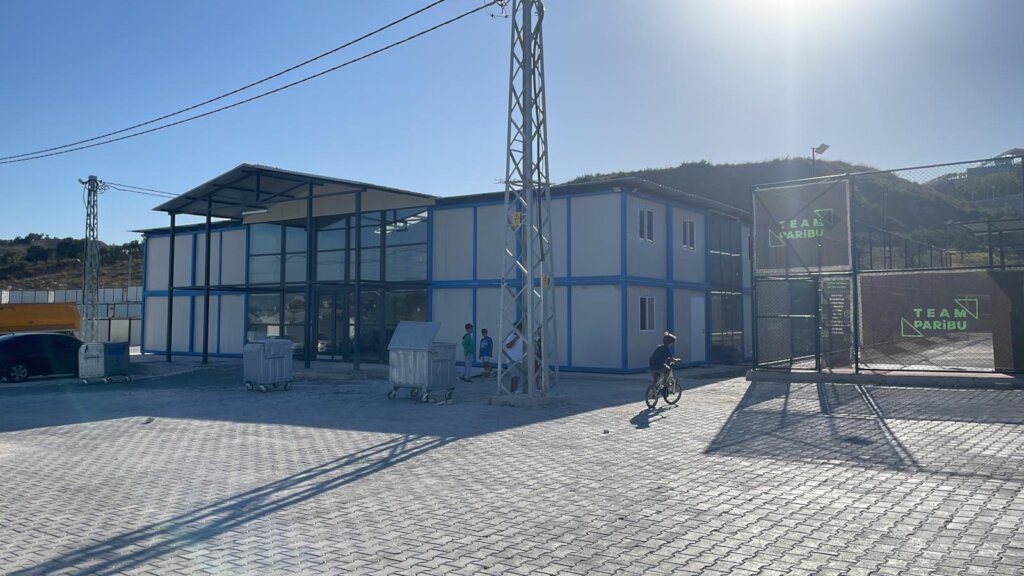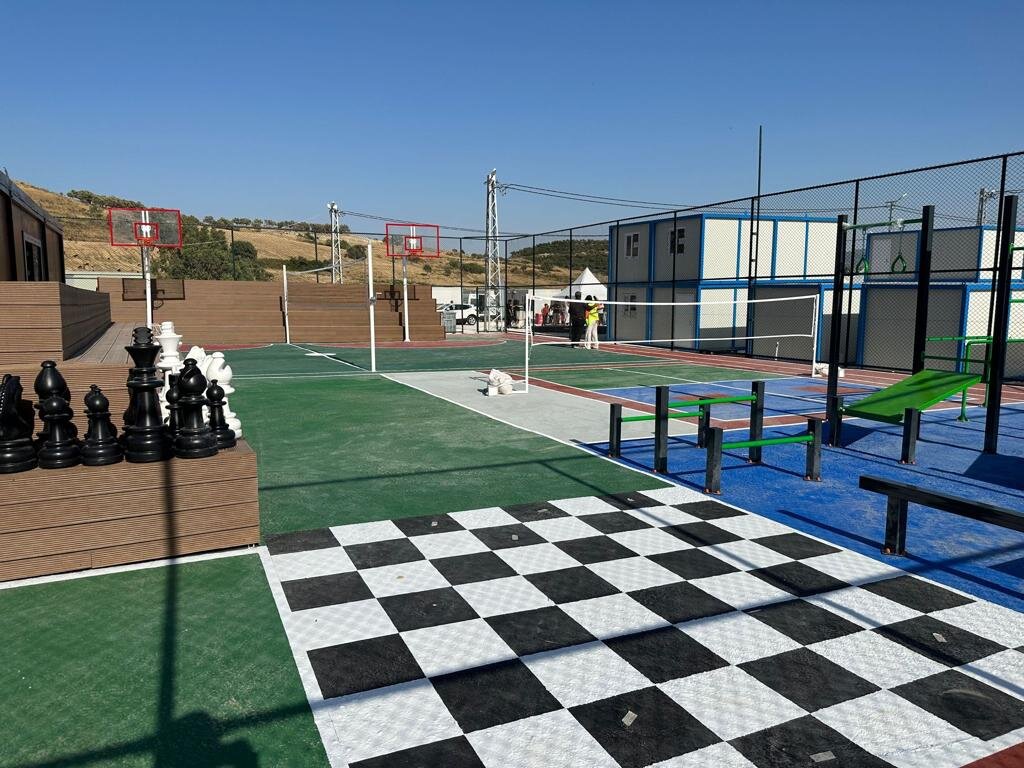![]()
Two devastating earthquakes with magnitudes of 7.8 and 7.6 occurred in Turkey on the 6th of February. The earthquake caused serious destruction and loss in many different provinces of Turkey. Many buildings were severely damaged and destroyed in the earthquake in more than 10 cities. The earthquake took place in a quite large area, home to about 15.2 million people, and affected about 9.1 million people. About 50,000 people lost their lives. While 3 million people have to leave their homes and relocate, approximately 1.6 million people live in irregular living spaces.
From the first day of the earthquake, Needs Map works with its team members and map-based technological infrastructure to make needs analysis and determine the impact of disasters on people, buildings, and economic activities in the region. Needs Map monitors the impact on affected communities and works with Disaster Network members to distribute aid and support to places where it is most needed through warehouses in the earthquake regions (Adana, Hatay, Adyaman, Gaziantep, and Kahramanmaras) to respond quickly and to provide emergency supplies and to coordinate in-kind aids.
In order to collect data and information about the people in need and their needs, we build "Needs Map Online WhatsApp Request Center". We will verify the needs collected as online and respond to these needs and people in need more quickly.
Through the platform “One Rent One Home” carried out in cooperation with the Izmir Metropolitan Municipality and the Needs Map, it is aimed to contribute to the solution of the sheltering problem of the earthquake victims with the donations to be collected. Since the first day of the earthquake on 6th February, as a total of approx. 400m (approx. (20m $) was collected and the shelter needs of 30.934 people were met.
Needs Map establishes co-living spaces consisting of container houses in Hatay, Kahramanmaras and Adyaman, the three provinces where the effects of the earthquake were felt most intensely, in order to support the need for shelter, which is one of the biggest needs that emerged after the earthquake. These areas, unlike other routine container cities from the perspective of hosting only too many people, aim to bring people closer to their routine life before the earthquake and to contribute to both their physical and psycho-social well-being. In this direction, sports areas, child-friendly playgrounds and community centers where culture-arts-education activities will be carried out will be established in these areas. There will be approximately 800 containers in total in these three areas. The estimated population in these areas is about 3000.
As Needs Map team, we aim to response the current earthquake in Turkey with sustainable development approach by establishing two 'Regional Recovery and Development Centers' which will be located in Adana and Gaziantep. Through the centers, it will be more possible to response quickly for the immidiate needs including shelters, food, hygiene materials and clothes. We also aim to carry out long-term development projects including psychosocial support, recovery of livelihoods, child protection, development and education, health, social cohesion, women friendly life, and resilience for SMEs.
The support materials and numbers provided by Needs Map to the earthquake regions are approximately as follows:
- Drinking water – 225,176 pcs
- Shelter materials(tents, containers) – 13,000 pcs
- Food materials – 35,000 packages
- Kitchen materials – 44,000 pcs
- Heater materials (heaters, blankets) – 35,000 pcs
- Baby care materials (diapers, baby blankets, baby food, pacifiers, feeding bottles etc.)-50,000 Packages
- Textile& clothing materials- (underwear, clothes, shoes, socks ets.)-25000 packages
- Hygiene materials(sanitary pad, disinfectant, towel paper, toilet paper, wet wipes, soap, shampoo etc.)-50,000 packages
Needs Map, which has been working in the field since the first day of the earthquake, carried out emergency response and early recovery activities. However, it is very important for the people living in the region and affected by the earthquake that the support provided is sustainable rather than one-time. Needs Map establishes living spaces consisting of container houses in Hatay, Adyaman and Kahramanmaras. Considering that people will continue to stay in these living spaces for a long time, the process of meeting the needs in their living spaces will also continue actively. In addition to meeting basic needs, studies will be carried out to support people's recovery of their livelihoods in the medium and long term, and to meet their psycho-social, physical and educational needs.
![]()
![]()
![]()
![]()
![]()
Links:
![Share on Twitter]()
![Share on Facebook]()
